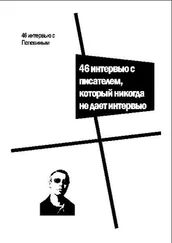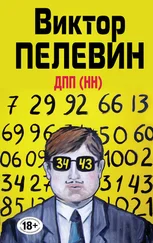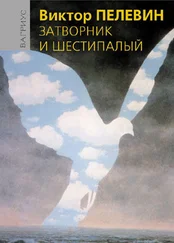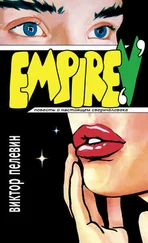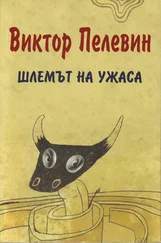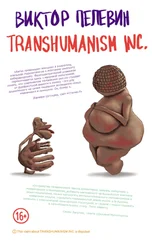Виктор Пелевин - Buddha's Little Finger
Здесь есть возможность читать онлайн «Виктор Пелевин - Buddha's Little Finger» весь текст электронной книги совершенно бесплатно (целиком полную версию без сокращений). В некоторых случаях можно слушать аудио, скачать через торрент в формате fb2 и присутствует краткое содержание. Жанр: Современная проза, на английском языке. Описание произведения, (предисловие) а так же отзывы посетителей доступны на портале библиотеки ЛибКат.
- Название:Buddha's Little Finger
- Автор:
- Жанр:
- Год:неизвестен
- ISBN:нет данных
- Рейтинг книги:5 / 5. Голосов: 1
-
Избранное:Добавить в избранное
- Отзывы:
-
Ваша оценка:
- 100
- 1
- 2
- 3
- 4
- 5
Buddha's Little Finger: краткое содержание, описание и аннотация
Предлагаем к чтению аннотацию, описание, краткое содержание или предисловие (зависит от того, что написал сам автор книги «Buddha's Little Finger»). Если вы не нашли необходимую информацию о книге — напишите в комментариях, мы постараемся отыскать её.
Buddha's Little Finger — читать онлайн бесплатно полную книгу (весь текст) целиком
Ниже представлен текст книги, разбитый по страницам. Система сохранения места последней прочитанной страницы, позволяет с удобством читать онлайн бесплатно книгу «Buddha's Little Finger», без необходимости каждый раз заново искать на чём Вы остановились. Поставьте закладку, и сможете в любой момент перейти на страницу, на которой закончили чтение.
Интервал:
Закладка:
It was not the actual view of the town that made the most powerful impression, but the panorama of the chalice formed by the mountain slopes; the town was rather unkempt and reminded me more than anything of a heap of rubbish washed down into a pit by torrential rain. The houses were still half-concealed by the final lingering wisps of morning mist. I was suddenly astonished to realize that I myself was a part of the world which lay on the bottom of this gigantic drain - where this strange, confused civil war was happening, where people were greedily dividing up the tiny, ugly houses and the crooked patches of vegetable gardens in order to gain a firmer foothold in what was literally the sink of creation. I thought about the Chinese dreamer whose story Chapaev had told me and then looked down again. In the face of the motionless world stretched out around me, beneath the calm gaze of its sky, it became inexpressibly clear that the little town at the bottom of the pit was precisely like every other town in the world. All of them, I thought, lie on the bottom of the same kind of depression, even though it may not be discernible to the eye. They are all stewing in a massive devil’s cauldron on the flame that is said to rage at the centre of the Earth, and they are all simply different versions of one and the same nightmare which nothing can change for the better. The only thing that can be done with this nightmare is to awaken from it.
‘If they wake you up from your nightmares the same way they did that Chinaman, Petka.’ Chapaev said without opening his eyes, ‘all that’ll happen is that you’ll drop from one dream into another. You’ve been flitting to and fro like that all eternity. But if you can understand that absolutely everything that happens to you is a dream, then it won’t matter a damn what kind of dreams you have. And when you wake up afterwards, you’ll really wake up - for ever. If you want to, that is.’
‘But why is everything that is happening to me a dream?’
‘Because, Petka.’ Chapaev said, ‘there just isn’t anything rise.’
The climb came to an end and we emerged on to a broad plateau. Far away on the horizon, beyond a line of shallow hills, the massive blue, lilac and purple forms of mountains thrust up high into the sky, with an immense open expanse of grass and flowers before them. Their colours were dull and laded, but there were so many of them that the overall tone of the steppe seemed not so much green as straw-coloured. It was so beautiful that for several minutes I forgot all about what Chapaev had said - and about everything else in the world.
Except, strangely enough, for that Chinese dreamer. As I looked at the faded faces of the flowers drifting past our carnage, I imagined him soaring through the space between them, pausing occasionally out of habit to paste up an anti-
government broadsheet on a slim shoot of bracken, and then starting in surprise every time he recalled that it was a long
time since he had had any broadsheets to paste up. And even he had had any, who would read them?
Soon, however, I was disturbed from my meditations. Chapaev had obviously given our driver some kind of signal. We picked up speed, and everything around the carriage began to blur into stripes of colour. The Bashkir lashed the horses mercilessly, half-standing on the coach-box and shouting guttural sounds in an unfamiliar language.
The road along which we were travelling could be called that only in name. Perhaps there were fewer flowers growing on it than in the open field, and traces of some ancient rut could still be discerned at its centre, but it was far from easy to guess where it ran. Nonetheless, the surface of the steppe was so ideally even that we were hardly shaken at all. The cavalrymen in black who brought up the rear of our small detachment moved off the road, drew almost level with our carriage and formed into two groups, one on each side, so that now they were hurtling along with us over the grass in the form of an extended arc; it was as though our carriage had sprouted two narrow black wings.
The machine-gun landau in which Anna and Kotovsky were sitting also picked up speed and drew almost level with us. I noticed Kotovsky prodding his driver in the back with his cane and nodding towards our carriage. They were clearly trying to overtake us, and at one point they very nearly succeeded, hurtling along beside us at a distance of only a few yards. I noticed a design on the side of the tachanka, a circle divided by a wavy line into two halves, one black and one white, each of them with a small circle of the opposite colour at its centre - I thought I recognized it as an Eastern symbol of some kind. Beside it there was a large inscription, crudely daubed in white paint:
POWER OF NIGHT AND POWER OF DAY SAME OLD GARBAGE ANY WAY
The Bashkir lashed our horses, and the tachanka fell behind again. It seemed incomprehensible to me that Anna could have agreed to travel in a carriage decorated with words of that kind. But then I suddenly had the feeling, which rapidly hardened into certainty, that she was the very one who had written the inscription on the side of the landau. How little, in actual fact, did I really know about this woman!
Our detachment hurtled on across the steppe to the accompaniment of wild whistles from the cavalrymen. We must have covered five or six miles like that - the hills on the horizon had moved so much closer that I could clearly distinguish their large rocks and the trees that grew on them. The surface of the steppe across which our carriage was racing at such speed was now less even than when we had begun our gallop; sometimes the carriage was thrown high into the air, and I began to feel afraid that the excursion would end in a broken neck for some of our company. Then Chapaev drew his Mauser from its holster and fired into the air.
‘Enough!’ he roared. ‘Walk on!’
Our carriage slowed its pace. The horsemen, as though afraid of crossing the invisible boundary of a line projected from the rear axle of our carriage, began dropping out of view behind us one by one. The landau with Anna and Kotovsky also fell back, and within a few minutes we were again far ahead of them.
Ahead of us I noticed a vertical column of smoke rising from behind the hills. It was dense and white, like the smoke I mm grass and damp leaves thrown on to a fire; the strangest thing about it, however, was that it scarcely widened out at all as it rose, which made it appear like a tall white pillar propping up the sky. It was no more than a mile ahead of us, with its fire concealed by the hills. We continued our advance for a few more minutes and then halted.
The road came to an end at two low, steep-sided hillocks with a narrow path running between them. They were like gateposts to some natural gateway, and were so symmetrical that they looked like a pair of ancient towers which had sunk down into the ground many centuries ago. They seemed to mark a boundary, beyond which the landscape changed, with foothills beginning to merge into the mountains on the horizon. It seemed, too, that it was not only the landscape that was different on the far side; feeling a gust of wind on my tace, I looked up in amazement at the column of smoke which rose absolutely straight from a source which must now be very close at hand. ‘Why are we standing here?’ I asked Chapaev. ‘We’re waiting,’ he replied. ‘For whom? The enemy?’
Chapaev did not answer. I suddenly realized that I had left my sabre behind and only had my Browning with me, so that I would find myself in a somewhat uncomfortable position if we had to deal with cavalry. But then, judging from the calm manner in which Chapaev carried on sitting in the carriage, we were not in any immediate danger. I glanced behind me.md saw the landau with Kotovsky and Anna standing beside us. I noticed Kotovsky’s white face; sitting there on the back seat with his arms folded across his chest, he looked rather like an opera singer poised to make his entrance. I could see Anna’s back as she fiddled with the machine-guns, but she seemed to be doing it less in order to prepare the guns than to relieve her irritation at sitting beside the insufferably solemn Kotovsky. Our mounted escort, apparently afraid of approaching the earthwork gateposts, kept a good distance, and I could make out no more of them than their dark silhouettes
Читать дальшеИнтервал:
Закладка:
Похожие книги на «Buddha's Little Finger»
Представляем Вашему вниманию похожие книги на «Buddha's Little Finger» списком для выбора. Мы отобрали схожую по названию и смыслу литературу в надежде предоставить читателям больше вариантов отыскать новые, интересные, ещё непрочитанные произведения.
Обсуждение, отзывы о книге «Buddha's Little Finger» и просто собственные мнения читателей. Оставьте ваши комментарии, напишите, что Вы думаете о произведении, его смысле или главных героях. Укажите что конкретно понравилось, а что нет, и почему Вы так считаете.

